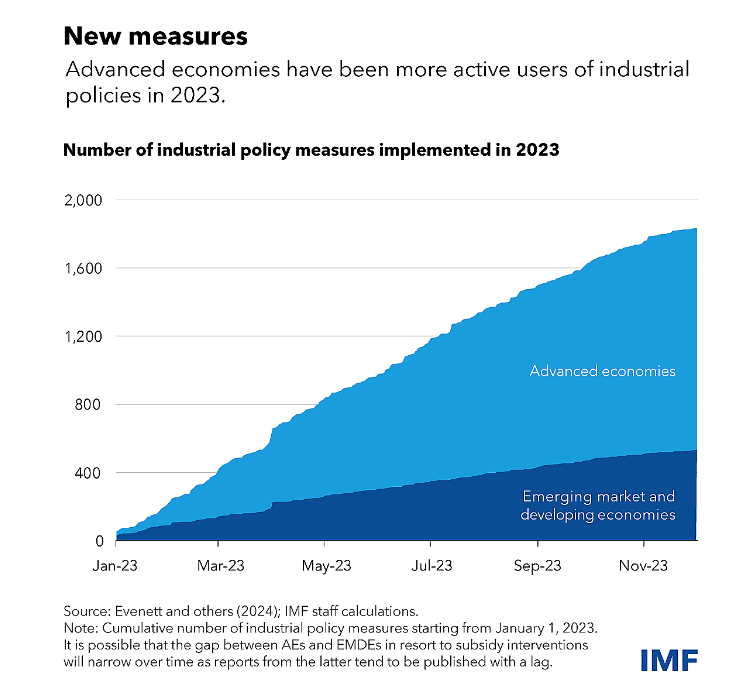For years, advanced economies have been lecturing poorer countries on what they should do to grow their economies. Often called the “Washington Consensus,” we tell developing countries that they are poor because they engage in too many industrial policies such as high tariffs and subsidies. They must liberalize, move towards the free market. Don’t be like Argentina, be like Singapore.
A recent article from Scott Lincicome underlines that it is now the advanced economies which are adopting these anti-growth policies:

I guess you could say we’ve changed our minds on industrial policies. But we continue to call on developing countries like China to reduce trade barriers and subsidies to manufacturers.
PS. This comment in The Economist caught my attention:
The Economist, using data from the Manifesto Project, a research group, examined the relationship between pro- and anti-free enterprise discussions in political party manifestos in 35 Western countries from 1975 to 2021, the year most recent available (see graph 1). We used a five-year moving average and excluded parties that received less than 5% of the vote. In the 1990s, deregulation, privatization, unfettered trade and other policies that gladden the hearts of businessmen were almost twice as much praised as criticized. Today, politicians are more likely to reject these ideas than to celebrate them.


